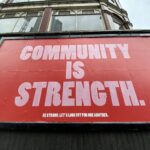It’s hard for me not to wonder about freedom and what it means this July. All the chaos and drama in our national discourse lead me to reflect on my personal freedom, and how that connects to my freedoms in the broader community. Today’s post will explore the connection between individual freedom and choices, and community freedom and choices.
As I have mentioned, a colleague Joy Jones and I are in the process of doing final edits on a book about Bill and Lois Wilson and how their marriage changed the world. My focus on the Wilsons and how their personal choices influenced the growth and development of the addiction recovery movement has sharpened my focus on freedom and choices.
The Wilsons, like many founders of causes or movements, gave their life to Bill’s mission of changing the world by helping people with drinking problems, and their families. What’s different about how the Wilsons approached their life’s work is the intersection of personal and community freedom. They started with a very personal and individual problem – Bill’s drinking was out of control. He was unemployable, supported by Lois’ income from her department store job. He was unreliable, disappointing Lois, himself, and his employers repeatedly because of his drinking, and the behaviors that went with it.
The Wilsons and the pioneers of the Recovery Movement were clear from the outset that personal change and love of service to community went together. In short, personal spiritual and emotional growth was required to overcome drinking. This same commitment to personal change was necessary for the family and friends of the alcoholic to let go of their very reasonable fears and desire to control an uncontrollable situation. Personal and family recovery was achieved by becoming part of a community with whom both the drinker and her or his family could identify. This process benefitted the individual, the family and the community.
As I have gotten closer to publishing this book, I have had to face a few old fears and outdated beliefs of my own. I am realizing I am not free to bring my best creative work to this book if I let my fear of criticism get in the way. I also am recognizing how my early experience with large institutions and authority figures has led to an unhealthy way of behaving toward those whose cooperation or approval I need to succeed.
Like Bill and Lois Wilson and many who have adopted their Twelve Step way of life, I need to be willing to recognize and accept these limiting beliefs, see how they are limiting and hurting me and others, and ask for help to change. For me, this is called surrender. I need faith in some power beyond me that I call Big Spirit, Big Heart, or LOVE and a community of friends with whom I can confide my weaknesses and get encouragement. Most of my human limitations are not unique. Being part of a faith community and a recovery community gives me much-needed support to grow and change. And thus be freer.
When we as individuals come together in community, we each bring our personal history, culture and context. One can argue that our current national divide and culture wars are for many often fueled by a deeply held faith, a commitment to personal growth and change, and a strongly held desire to preserve and protect community. Sadly, this equation is not resulting in healthier communities and more justice from my perspective. We have a problem of using faith and faith communities to demonize others and insist on simplistic answers to complex community challenges like health care, climate and racial equality among others.
We are all free to have opinions. And we are free to disagree. What Bill and Lois Wilson did in launching the recovery movement is different in several ways from our current situation. First, they asked all to commit to our common welfare – everybody’s. They guaranteed all opinions, including minority opinions, would be heard and considered. They then invited some power bigger than the community and the individuals into the deliberations – a Higher Power or Force for Good. This Higher Power assisted the group in developing a group conscience, that reflected the common welfare and what was best and agreed to by most.
The debates over our national elections, what is at stake, and who our candidates are, are great examples of where individual commitment to growth and community consensus building seem at odds. It is easier to point fingers than to look at ourselves and ask what might I do differently to move to more freedom for all.
The road to progress and more freedom for all is not clear. However, I suspect it involves both individual and community growth and change.




0 Comments